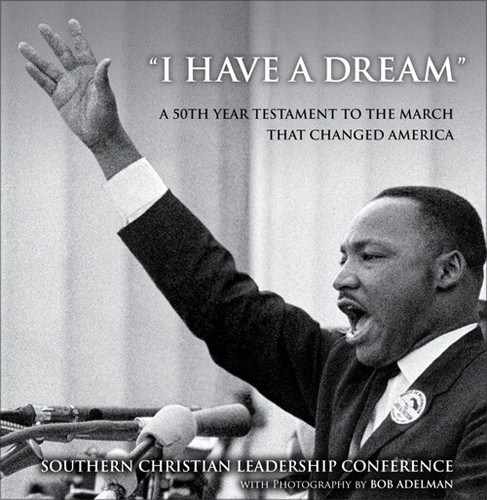Fifty Years Later: A Look at Today
By Dr. Rodney Sampson
If Dr. Martin Luther King, Jr. had been asked if he believed America would elect a black president in 2008, he might not have answered yes. Then again, his dream was a very powerful one. He might have seen that as possible.
Could this have happened without the effects of the Civil Rights Act and Voting Rights Act being felt? Unlikely.
In spite of clear gains through the years, there is still a long ways to go and much for the Southern Christian Leadership Conference (SCLC) to help accomplish. Consider the state of America for African Americans 50 years after the march.
According to the U.S. Labor Department, the unemployment for African Americans fell substantially in January of 2013 to 13.6%. It remains significantly higher than the 8.5% rate of November 2007, just prior to the recession. Aggregate numbers showed that the African American community as a whole had exhibited poorer labor market outcomes than other races even prior to the recession and during the recovery, demonstrating that they often face different and greater challenges.5
It is not just the employment rate that presents a stark difference; the wealth gap between blacks and whites in America has risen to record highs. The median wealth of white households is 20 times that of black households and 18 times that of Hispanic households, according to a Pew Research Center analysis of newly available government data from 2009.6
In her book The American Non-Dilemma: Racial Inequality Without Racism,7 Rutgers professor Nancy DiTomaso argues that whites use family, friends, and acquaintances to get as many as 70% of their jobs, a practice that continues to put African Americans at a disadvantage.
In their book Documenting Desegregation: Racial and Gender Segregation in Private-Sector Employment Since the Civil Rights Act,8 Kevin Stainback and Donald Tomaskovic Devey make a compelling case for African Americans making no progress at all for equal opportunities in private firms since the 1980s—that the gains of the 1960s and 1970s have been cancelled out by resegregation in the job market.
Voting rights and conditions may have improved by large strides, but there is a long road to go before anyone can rest.
It would appear that the need for the SCLC is not over and that there is much left to do.
With new and needed goals to accomplish, this is why the SCLC takes this occasion to
• Celebrate the fiftieth anniversary of Dr. Martin Luther King’s March on Washington for Jobs and Freedom.
• Celebrate the one-hundred fiftieth anniversary of President Abraham Lincoln’s Emancipation of Southern Slaves.
• Celebrate men, women, causes, and companies that have demonstrated their commitment to the global cause of human, civil, and economic dignity.
• Relaunch Dr. King’s last cause, the Poor People’s Campaign, in the form of a Washington, D.C.–based SCLC Poverty Institute designed to address modern-day poverty and the wealth gap in America and beyond with definitive education, innovation, entrepreneurship, and investment-based collaborative programs.
The SCLC Poverty Institute, in collaboration with Opportunity Community Development Corporation and Kingonomics, intends to embrace this and the following causes:
• Research and publish findings in collaboration with top academic and research-based institutions. Identify definitive challenges and discover viable and achievable solutions to address the wealth gap among underserved and underrepresented communities in America and beyond.
• Advocate for federal, state, and local policy and legislation that decreases the wealth gap among minority and underserved communities in America and beyond.
• Facilitate exposure to youth, young adults, corporate executives, veterans, and the unemployed to the innovative industries and opportunities of the future.
• Provide economic, entrepreneurship, and investor-based education via Kingonomics conferences, boot camps, webinars, coaching, and mentorship.
• Facilitate the development of Opportunity Incubator Hubs in collaboration with entrepreneurial companies and investors with the definitive purpose of launching and accelerating start-up companies designed to service these industries’ quest for innovation and efficiency.
• Develop collaborative partnerships with funding platforms designed to provide start-ups and growth stage companies with access to capital while simultaneously creating a global ecosystem of entrepreneurs and investors.
In the spirit of Dr. Martin Luther King, Jr., the SCLC and other civil rights organizations can say, “Our work is not done. We have a dream.”
